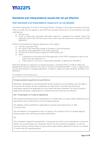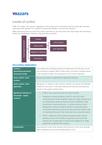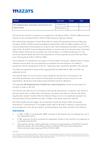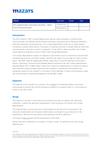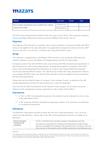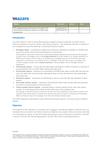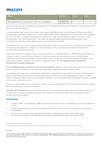Tell your story effectively and transparently to all your stakeholders
Good reporting offers a window into the culture of the organisation. Recent years have seen a stronger emphasis placed on reporting quality, with tighter regulation and rising demands from stakeholders. Companies must work harder than ever to tell their story. From fast-growing start-ups to established multinationals, we work with companies to help them communicate clearly and effectively.
Our approach
Demands for greater financial transparency and proof of organisational sustainability are coming from many sides, including regulators, investors, and other stakeholders. The result: today’s reports are expected to go beyond reporting financials and embrace strategy, quality of governance, remuneration schemes, and even the organisation’s impact on the environment, employees, society and other stakeholders.
This growing list of requirements has already placed a heavy burden on leadership teams and is likely to expand further. At Mazars, we have a strong track record helping our clients to meet – and exceed – the very latest corporate reporting standards.
We bring together a team of professionals combining financial reporting and accounting knowledge with non-financial reporting expertise to deliver a pragmatic business approach.
We regularly support our clients offering them integrated solutions in the following areas:
Financial aspects
- Implementing new accounting standards
- Addressing complexities arising from proposed new accounting standards and guidance
- GAAP conversions
- Mergers and acquisitions
- Consolidations support
- Group reorganisations
- Complex consolidations
- Financing structures
- Capital reductions
- Purchase price allocation valuations
- Share-based payment valuations
- Pension scheme arrangements
- Infrastructure projects
Non-financial aspects
- Developing non-financial, integrated annual reports
- Assisting with establishing corporate governance risk disclosures
- Collecting and collating nonfinancial data to support reporting to management, the board and external disclosures
- Identifying key performance indicators
- Providing support on developing integrated reporting frameworks
Our “Beyond the GAAP” monthly newsletter highlights our approach and our expertise, offering insights into the thinking of national and international accounting standards bodies plus other organisations that can affect corporate reporting such as securities regulators.
Our tools & solutions
We have a continuous innovation process to design and develop bespoke tools and solutions that support our work and help us provide more value and better insights. How we can assist:
- IFRS services:
- Financial statement reviews
- IFRS advise and memorandums
- IFRS opinions
- IFRS for SMEs services
- JSE Listings Requirements
- Training and webinars
JSE Accreditation
Mazars is accredited with JSE Limited to perform IFRS advisory services for listed companies. Mazars has two internal IFRS advisors, Suzanna de Jager and Justine Combrink, who specialise in International Financial Reporting Standards.
Our people
We have professionals dedicated to the analysis of emerging accounting and corporate reporting standards, familiar with regulatory requirements in different parts of the world and with extensive experience across different industries.
Members of our team meet regularly with policymakers, participate in industry working groups and collaborate as one global, integrated team to share knowledge and best practice, meaning we are well placed to be proactive in advising our clients on the forthcoming standards and their implications.
Please download latest checklists and documents below:














































